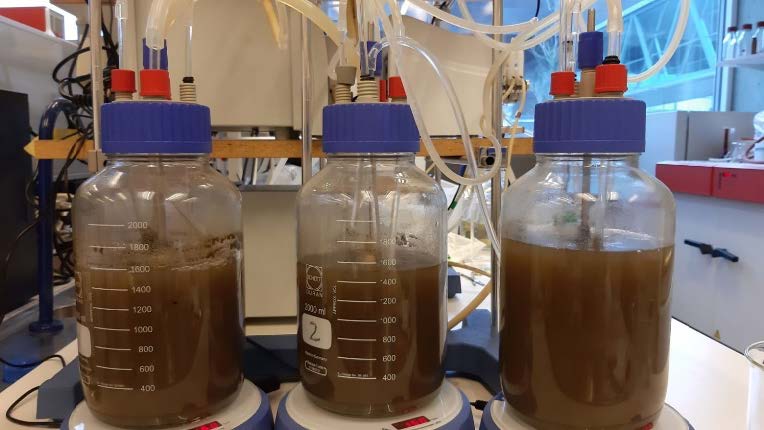Wastewater treatment plants as critical reservoirs for resistance genes
Environment
Interventions
Surveillance
Transmission
- Rolf Lood, Lund University, Sweden (Coordinator)
- Bo Mattiasson, Lund University, Sweden (Partner)
- Kurt Fuurstedt, Statens Serum Institute, Denmark (Partner)
- Roald Kommedal, University of Stavanger, Norway (Partner)
Antimicrobial resistance is a worldwide problem, and many bacteria have now developed resistance towards even last-resort antibiotics. Despite significant attempts to limit this development more and more infections are identified as resistant to the treatment in hospitals. Much effort has been put into understanding the spread of resistance, and treatment thereof, within a hospital setting. It is only quite recently that an understanding that we need to also take in the environment, and development of resistance in such a setting in what now is called a One Health Approach has dawned. Not only is the presence of resistance in hospitals important, but of equal importance is the presence of free antibiotics in nature, usage of antibiotics for food industry, handling of wastewater etc for the spread of antibiotic resistance. The wastewater treatment plants have been shown to be a hotspot for development of antibiotic resistance due to the high prevalence of bacteria and viruses there, as well as high levels of antibiotics. This will favor resistant bacteria, and exchange of resistance between microbes. A key player in this perspective are the bacterial viruses (bacteriophages) that can act as a transmission vehicle and transfer resistance between different bacteria. Our research aims at understanding the mechanisms underlying these transmission dynamics, and develop means to limit it.
- Environmental Microbiology, 2022. Biogeographical variation in antimicrobial resistance in rivers is influenced by agriculture and is spread through bacteriophages
- Journal of Visualized Experiments : JoVE, 2018. Ultrasensitive Detection of Biomarkers by Using a Molecular Imprinting Based Capacitive Biosensor
- Frontiers in Microbiology, 2020. Biotechnological Potential of Bdellovibrio and Like Organisms and Their Secreted Enzymes
- Sensors and Actuators B: Chemical, 2018. Bacteriophages as biorecognition elements in capacitive biosensors: Phage and host bacteria detection
- Front. Microbiol, 2017. Revisiting Antibiotic Resistance Spreading in Wastewater Treatment Plants – Bacteriophages as a Much Neglected Potential Transmission Vehicle
- Journal of Bacteriology, 2020. Studies on Bd0934 and Bd3507, Two Secreted Nucleases from Bdellovibrio bacteriovorus, Reveal Sequential Release of Nucleases during the Predatory Cycle
- Journal of Oral Microbiology, 2021. Entamoeba gingivalis: epidemiology, genetic diversity and association with oral microbiota signatures in North Eastern Tanzania
- Frontiers in Microbiology, 2022. Enrichment of antibiotic resistance genes within bacteriophage populations in saliva samples from individuals undergoing oral antibiotic treatments

- Gene-gas project website
- Cybernetics and Systems Biology Laboratories, University of Stavanger, Norway
